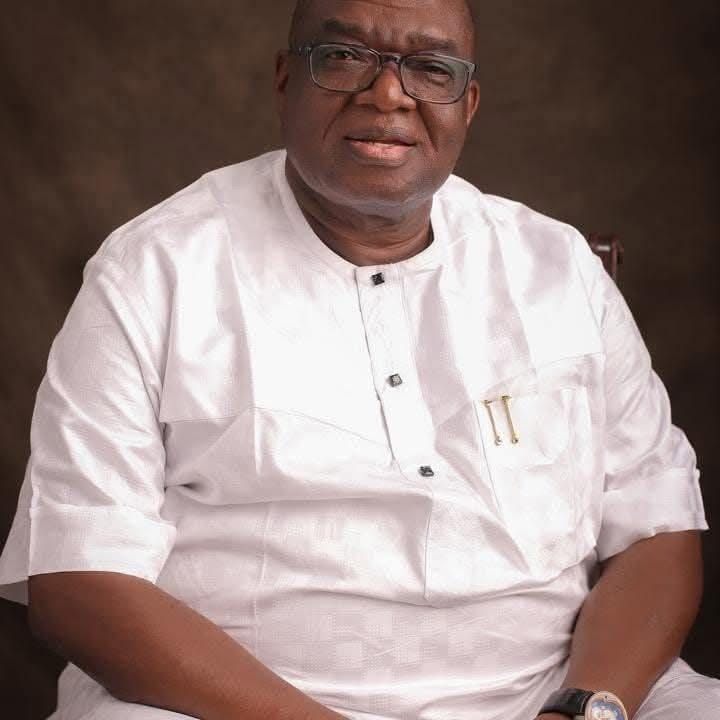By Senator Ehigie Uzamere
The recent purported coronation of an “Iyaloja of Edo State Market Association” by Chief (Mrs.) Folashade Tinubu-Ojo, who goes by the title of Iyaloja-General of Nigeria, has generated widespread debate, confusion, and controversy. To understand why this move has unsettled many in Benin City, Edo State, one must revisit the cultural and historical foundations of market leadership within the Edo South Senatorial District, otherwise known as the Benin Kingdom.
In Benin culture, market leadership is not a political creation or an external imposition. It is a deeply rooted institution governed by tradition and sanctioned by the Oba of Benin. Market leaders, traditionally known as Iy’Ikhueki or Iyeki, are selected by the market women themselves and later confirmed and blessed by the Oba, the revered custodian of Edo culture. Once confirmed, the Iyeki becomes the custodian of market traditions and the cultural representative of the Oba within that marketplace. This tradition is centuries old and must be spared from the corrupting influence of Nigerian politics.
Each market in the Benin Kingdom functions independently, with its own Iyeki. There is no overarching “Iyaloja of Edo State,” as markets are decentralized in their leadership, anchored in the customs of their respective communities, and collectively tied to the authority of the Oba of Benin.
The title Iyaloja, popular in parts of Western Nigeria, is not indigenous to Benin tradition, and the word Iyaloja is not found in the Benin language lexicon. While respected in its place of origin, it is culturally alien to Edo State. Attempts to superimpose this title over Benin markets not only ignores historical reality but also distorts the carefully preserved traditional structures that define market leadership in the Kingdom.
The Iyeki is not a political figure but a custodian of culture. She safeguards rituals, resolves disputes, maintains harmony among traders, and represents the Oba’s spiritual presence in the market. Her authority flows from the Oba, not from associations or external influences.
It is important to stress that market leadership in Benin is inseparably tied to the sacred authority of the palace. To tamper with this order is to tamper with the cultural soul of the people. Just as no external body can appoint palace chiefs in Benin, so too can no external association impose leadership on Edo markets. The palace remains the singular source of legitimacy, and its role can not be substituted or replicated by any outside influence.
The coronation of an “Iyaloja of Edo State” by an external body raises serious cultural and constitutional concerns:
It disregards the Oba’s sacred role in confirming market leaders, undermining centuries of cultural practice.
It politicizes an institution that has always been neutral, risking division and unrest among market women.
The concept of Iyaloja belongs to another cultural context; transplanting it into Edo South amounts to cultural encroachment and disrespect.
The markets of Edo South are not merely centers of trade; they are cultural spaces tied to the identity and heritage of the Benin people. The attempt to impose a non-traditional title upon them disrespects this heritage and risks creating unnecessary tension between modern associations and age-old customs. In the name of God and the ancestors of the ancient Benin Kingdom, I urge Benins to reject the imposition of Iyaloja on our market women in Edo South.
For centuries, the Oba of Benin has been the fountain of cultural legitimacy. Any deviation from this order threatens not just the stability of market leadership but also the dignity of the traditions that define the Benin Kingdom.
The coronation of an “Iyaloja of Edo State Market Association” by Chief (Mrs.) Folashade Tinubu-Ojo is not only culturally misplaced but also potentially a disruptive move. Market leadership in Edo South is the prerogative of the Oba of Benin, exercised through the recognition and confirmation of Iyeki selected by the traders themselves.
For the sake of peace, harmony, and respect for cultural heritage, stakeholders must recognize and honour the boundaries of culture and tradition. Edo South markets must remain what they have always been: sacred cultural and economic spaces, guided by the Oba of Benin and safeguarded by the Iyeki.
Only Omonoba N’Edo Uku Akpolokpolo, Oba Ewuare II N’Ogidigan, wears a crown in Benin City. Not an Iyaloja, not any other human being. Torghobaghase – only the words from the Oba of Benin when it concerns the culture and traditions of the Benin people must come to pass and be respected.
Oba Ghator Kpere.
Senator Ehigie Uzamere writes from Benin City, Edo State, Nigeria.






